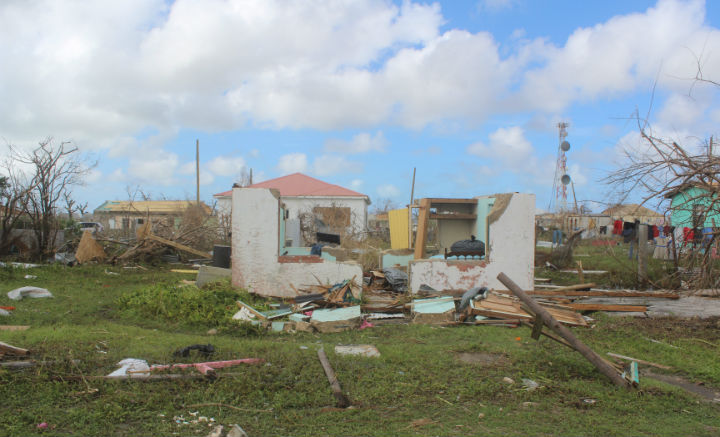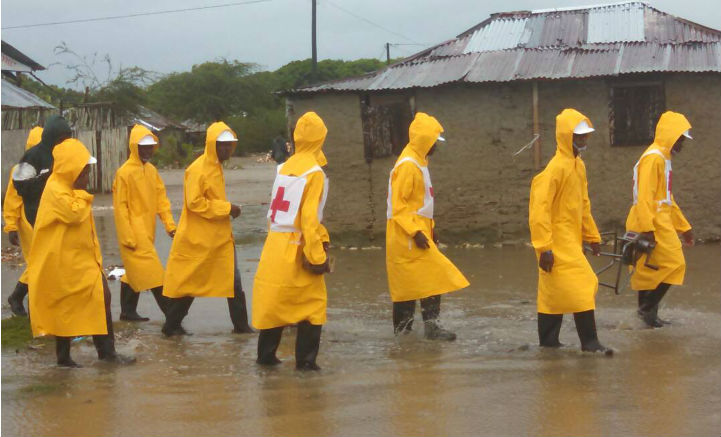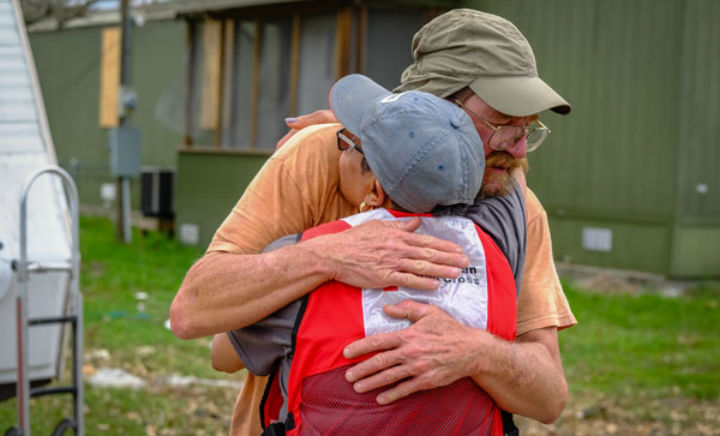Hurricane Irma: Red Cross preparation and response
More than 1.2 million people have so far been exposed to the effects of Hurricane Irma, the most powerful hurricane ever recorded in the Atlantic Ocean. It made landfall on several eastern Caribbean islands on 6 September, sweeping through the region and hitting the US state of Florida on Sunday 10 September. “The number of people directly exposed to the storm is growing every day. It is a catastrophe by any measure,” stated Elhadj As Sy, the Secretary General of the International Federation of Red Cross and Red Crescent Societies (IFRC).

With difficult conditions hampering attempts to effectively assess the damage, it is still too early to know the full extent of the situation. Preliminary reports indicate that the most severely affected places are Anguilla, Barbuda, British Virgin Islands, Cuba, Saint Martin, Saint Barthélemy and the Turks and Caicos Islands. The damage has been devastating in many areas. For example, 95 per cent of buildings in Barbuda have been destroyed, along with key infrastructure.
Capacities to respond to the effects of hurricane Irma are especially stretched where resources are already low. For example, supplies in the Dominican Republic have already been diminished this year by the attempts to recover from flooding in April.
Red Cross Action
Being prepared for disasters saves lives. Evacuation plans and strategically placed water, food, blankets, and other emergency relief items can make all the difference. The more prepared individuals, communities, aid organisations, and governments are, the greater their security in the long run.
With this understanding, the Red Cross has worked to prepare people for Irma. In Barbuda, Red Cross representatives went out into communities with flyers and checklists on how to prepare, and demonstrated through social media, television and the radio what to pack in an emergency bag. “People took our information and the warnings that were made very seriously, and acted to keep themselves safe,” expressed Michael Joseph, President of the Antigua and Barbuda Red Cross.

The Red Cross has also helped prepare for people’s eventual material needs. The French Red Cross Regional Intervention Platform for the Americas (PIRAC) has 3 warehouses in Martinique, Guadeloupe and Guyana stocked with essential supplies, while water purification stations were positioned in advance. Meanwhile, the British Red Cross gave out sandbags to the public in the Turks and Caicos Islands. The Pan American Disaster Response Unit of the IFRC, which has the capacity to respond quickly to emergency needs of approximately 250,000 people, is currently planning and coordinating any necessary additional support from sister National Red Cross Societies.
The Red Cross has been present across the region, following the devastation wrought by Irma. French Red Cross volunteers were among the first humanitarian teams to arrive to Saint Martin by boat, and have since mobilised their Restoring Family Links services, as well as distributing emergency supplies. The Antigua and Barbuda Red Cross has also been giving out relief items, such as mattresses, hygiene kits, and clean-up kits, and working to minimise water-borne diseases. The Dominican Red Cross and the Cuban Red Cross are carrying out search and rescue operations, first aid and psychosocial support in their respective countries. The Bahamas Red Cross Society has also been active in the community, providing material necessities to the estimated 3,000 people exposed to Irma’s effects. In the US, the American Red Cross has been running emergency shelters since the storm struck. In Florida alone, 460 shelters are hosting an estimated 127,000 people.

Given the scale of the damage cause by Irma, the IFRC has launched a CHF 1.1 million emergency appeal for Antigua and Barbuda, and St Kitts and Nevis. The relief operation in these countries will place heavy emphasis on cash – ensuring that people who lost their homes and belongings have financial resources to navigate the coming difficult weeks.
Learn more about the Red Cross response to Hurricane Irma.
For media inquiries, please contact Eva Oyón on: eva.oyon@redcross.eu or +32 2 235 09 22

